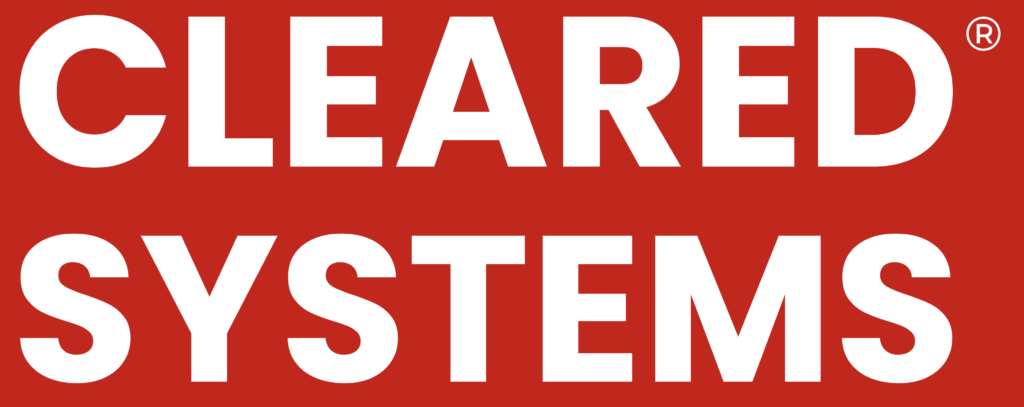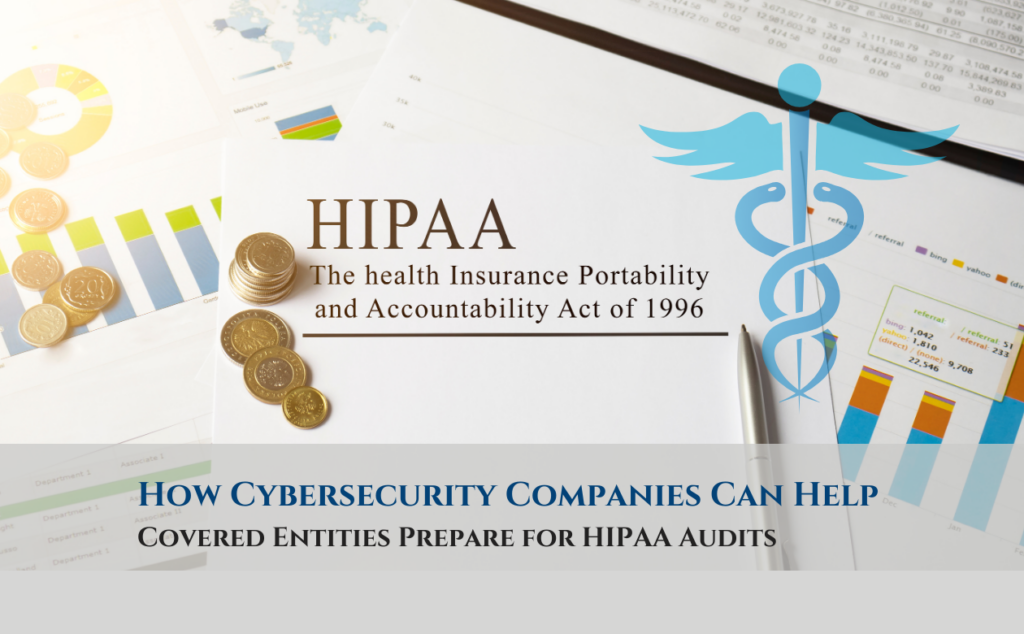Are you a HIPAA-covered entity? Whether you are a covered entity or a business associate (BA), receiving a communique of an upcoming audit can be stressful. HIPAA is one of the most stringent healthcare regulations in the world, and compliance is not a matter of choice; it is a MUST. Unfortunately, the healthcare sector is one of the most targeted by cybercriminals. In 2023, the healthcare industry reported the most expensive data breaches at an average cost of $10.93 million. HIPAA compliance can, to some extent, address these issues. However, the complexity of HIPAA regulations and the evolving threat landscape make it challenging for covered entities to ensure compliance on their own. This is where cybersecurity companies like Cleared Systems play a crucial role. They offer expertise and solutions to help these providers, among other things, prepare for HIPAA audits.
What Does a HIPAA Audit Entail?
HIPAA compliance audits are conducted annually by the Department of Health and Human Services (HHS) Office for Civil Rights (OCR) to assess how BAs or covered entities handle their Patient Health Information (PHI). These Patient Health Records (PHRs) must be handled in a manner that complies with HIPAA’s Privacy, Security, and Breach Notification Rules. Compliance audits can either be routine or triggered by reported breaches or complaints. In simple terms, HIPAA audits answer, “Has the Covered-Entity or Business Associate implemented the appropriate safeguards to protect PHI and follow the proper procedures in the event of a data breach?”
HIPAA audits involve a comprehensive review of an organization’s policies, procedures, and practices related to the protection of PHI. The audit process includes examining physical, technical, and administrative safeguards and the organization’s response to security incidents and breaches. Thus, covered entities and BAs must be prepared to demonstrate compliance with all HIPAA aspects during an audit.
The Importance of Cybersecurity in HIPAA Compliance
Today, the healthcare sector relies heavily on technology and digital systems for processing, transmitting, and storing PHI. Thus, cybersecurity has become an essential part of HIPAA compliance. Cleared Systems brings specialized expertise in protecting digital assets, vital in safeguarding electronic PHI (ePHI). Their professional teams offer a multifaceted role in helping covered entities prepare for HIPAA audits and can considerably improve an organization’s compliance posture.
How Can Cybersecurity Companies Help You Prepare for HIPAA Audits?
The last thing you want is to be caught unprepared for an upcoming audit. Thus, the best time to prepare for a HIPAA audit is before one. You must ensure that PHI is always encrypted, institute robust data access controls, and develop enforceable security audit procedures.
The first step in preparing for a HIPAA compliance audit is designating a HIPAA security and privacy officer. This professional will have various responsibilities, including:
– Investigating possible breaches where ePHI or PHI may have been compromised
– Developing and overseeing your organization’s privacy policies and procedures
– Annually training and monitoring your organization’s workforce on HIPAA regulations
– Establishing policies and procedures to safeguard PHI when privacy policies don’t adequately address the issue
– Ensuring that your security policies and procedures are adequate to protect the PHI and developing new policies and procedures where needed.
This professional can then work with a cybersecurity company to prepare their organization for an upcoming HIPAA compliance audit. With the expertise brought about by Cleared Systems, an organization can rest assured they are ready for HIPAA audits at any time. The cybersecurity professionals can help covered entities and Bas in the following key areas:
Employee Training
Cleared Systems can help the covered entity’s HIPAA security and privacy officer develop comprehensive, custom, and tailored HIPAA training materials and programs for their employees. Human beings remain the weakest link in any company’s cybersecurity efforts. Thus, covered entities and BAs must train their employees on many nuances of HIPAA regulations and the implications of non-compliance. Their experts have the resources to even craft simulations that ensure your employees receive comprehensive training.
This ensures they are up-to-date with the recent updates in the law and the best practices for ensuring PHI security. Engaging Cleared Systems ensures your team has specialized training that:
– Ensures your employees understand why HIPAA is important and necessary for protecting PHI.
– Explains the consequences of violating HIPAA.
– Details the controls and procedures employees must follow when handling PHI.
– Provides an overview of HIPAA regulations and their specific implications for your organization.
– Keeps employees informed of the latest HIPAA updates.
Create a Risk Management Plan and conduct Risk Assessment and Analysis.
One of the primary ways cybersecurity companies help healthcare providers is by conducting thorough risk assessments and analyses. However, this requires a comprehensive risk management plan, which these companies can help draft for the HIPAA security and privacy officer. Risk assessments and analysis identify potential vulnerabilities in an organization’s IT practices, infrastructure, and policies that might result in a HIPAA violation.
At Cleared Systems, they understand that organizations are different, necessitating different risk assessment processes to accommodate business needs, risks, and size. Their professionals use different methodologies and tools to:
– Scan networks and systems for vulnerabilities;
– Assess the effectiveness of current security measures;
– Identify gaps in policies and procedures and;
– Evaluate the organization’s overall security posture.
Risk assessments provide a comprehensive overview of the organization’s HIPAA compliance status and highlight potential areas that need improvement before an audit. However, risk assessments aren’t a one-time task. Instead, they should be conducted regularly to keep up with changes in an organization’s IT environment and the ever-evolving threat landscape.
Cybersecurity companies offer ongoing risk management services, ensuring organizations maintain a strong security posture over time. Covered entities and BAs should maintain robust documentation of their organizations’ HIPAA risk analysis and assessments and produce it during the audit. During the risk assessment and analysis, the cybersecurity company will:
– Map out the PHI flows in your organization, including its creation, processing, transmission, and storage.
– Identify threats, risks, and vulnerabilities in your organization’s systems, applications, and processes.
– Decide and analyze your organization’s HIPAA risk level based on threat probability and potential impact.
– Develop a risk management plan and test your environment through gap analysis, penetration tests, and vulnerability scans.
– Outline and document everything.
You should implement the necessary safeguards to patch gaps based on your organization’s risk analysis and tolerance.
Develop Policies and Procedures
The risk assessment findings are critical in developing robust policies and procedures that align with HIPAA requirements. Cybersecurity companies can help covered entities draft ironclad procedures to guide an organization’s HIPAA policy. This includes creating or updating security policies, developing incident response plans, establishing data backup and recovery procedures, and implementing access control policies. These policies and procedures form the basis of a robust HIPAA compliance program and are crucial elements that OCR auditors will examine.
Establishing policies and procedures is simply not enough. Organizations also must regularly review and refine them for maximum efficiency. This can be achieved through the implementation of periodic reviews of procedures and policies. For instance, organizations should review their tools and training materials at a defined frequency to check how their employees understand HIPAA procedures and policies.
Cybersecurity companies can also provide continuous monitoring services to detect and respond to potential security incidents in real time. This includes setting up SIEM systems, monitoring network traffic, and providing 24/7 Security Operations Center (SOC) services. Taking proactive steps to update and review policies regularly showcases an organization’s dedication to maintaining HIPAA compliance. Thus, they can avoid any penalties for non-compliance.
Documentation and Audit Trail Management
For any compliance audit, proper documentation is crucial. Cleared Systems helps covered entities and BAs implement systems for tracking and logging all access to ePHI, creating and maintaining detailed records of security measures and incident responses, and developing audit logs demonstrating ongoing compliance efforts. Such comprehensive documentation can significantly streamline the audit process, providing evidence of the organization’s commitment to HIPAA compliance. Detailed records also help OCR auditors understand an organization’s security practices and verify that appropriate measures are in place to protect PHI.
Conducting Internal Audits
Internal audits allow organizations to identify and address potential risks or any instances of HIPAA non-compliance. This saves you money and time. With the help of cybersecurity companies, you can conduct a security risk analysis to determine any weaknesses in your internal audit processes. For instance, a cybersecurity company can run a social engineering campaign to determine if your employees can identify phishing scams. Internal audits help identify where procedures can be updated, or answers are needed. These professionals will review your technical safeguards protecting ePHI and the physical security of your paper files and premises.
Incident Response and Breach Management
Incident response and recovery planning is a critical part of any business, and having a plan detailing steps to take in case of a violation or data breach is an essential part of HIPAA audits. Cleared Systems helps organizations prepare an internal recovery plan outlining the steps to address the breach and prevent future occurrences. A good incident response plan should identify the steps for notifying the affected stakeholders to report incidents to necessary authorities, among others. There should also be a clear recovery plan that can help mitigate damage in case of a HIPAA violation. This demonstrates an ongoing commitment to HIPAA compliance.
Conclusion
Preparing for HIPAA audits is a complex process requiring expertise in healthcare regulations and cybersecurity. By partnering with specialized cybersecurity companies, covered entities can significantly enhance their compliance posture while reducing the risk of penalties and data breaches. These companies bring a wealth of knowledge and proven methodologies that can help organizations in the healthcare sector navigate the complexities of HIPAA compliance with confidence.
With ever-evolving cyber threats and more stringent regulatory requirements, the role of cybersecurity companies in helping HIPAA-covered entities prepare for audits will only grow. If you’re looking for expert guidance and robust solutions to ensure your organization is fully prepared for HIPAA audits, contact us today. Our team of professionals is ready to help you safeguard your patient data and easily achieve compliance.

